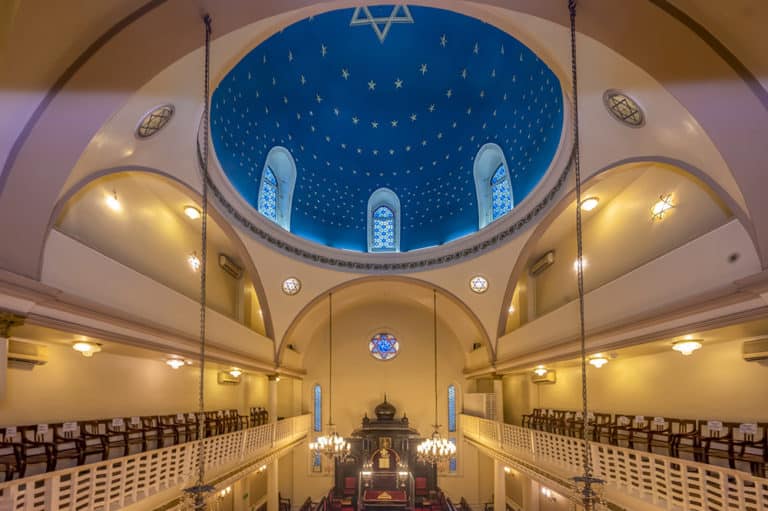
Now that we’ve celebrated Rosh Hashanah it’s almost time for the holiest day of the Jewish year. Yom Kippur begins the night of Tuesday, October 4th and ends the following evening.
Rabbi Alan Lew famously said of the days approaching Yom Kippur, “This is real and you are completely unprepared.” Despite us not being able to control time passing, you can be better prepared for this High Holy Day with this checklist:
- Leather-free shoes — Wearing leather shoes on Yom Kippur is prohibited (leather was a luxury apparel in earlier times so it was considered not suitable for the humble spirit of the day). To avoid leather footwear, many wear canvas sneakers, flip flops, Crocs, or wedge sandals.
- White clothes — It is traditional to dress in white on Yom Kippur. This symbolizes purity and the opportunity to begin the new year with a clean slate.
- Memorial candle — If one’s parent or parents are deceased, a special memorial candle (called a “ner neshama”) is lit in their memory and burns for the entire holiday.
- Holiday candles — The day before Yom Kippur, before sundown, it is traditional to light two candles (just like Shabbat candles). The blessing is, “Baruch ata adonai eloheinu melech ha-olam asher kiddishanu b’mitzvotav v’tzivanu l’hadlik ner shel yom hakipurim.”
- A machzor — This is the prayer book that is used at Yom Kippur (as well as Rosh Hashanah) services. If you don’t have one, you can find a machzor on Sefaria (Ashkenaz or Sefard).
- A shofar — Obviously, you’ll need this if you’re the one blowing the long blast of tekiah gedolah at the end of Yom Kippur services.
- Food for break fast — If you’re hosting break fast, make sure you have lots of food to feed your very hungry guests. In Ashkenazi Jewish homes, it is common to serve bagels, cream cheese, kugel, fresh fruit and coffee at this meal. In Sephardic Jewish homes, the menu could include dairy foods, soups and stews.
- Music — Get in the mood for Yom Kippur by listening to the beautiful Kol Nidrei and Avinu Malkeinu.
- Prepare yourself spiritually — Yom Kippur is all about self-reflection and atonement. If you have not yet undertaken a cheshbon hanefesh (literally, “an accounting of the soul”), it is not too late! Here are a few questions you can use to reflect and prepare spiritually for Yom Kippur.
- Learn more about Yom Kippur — Check out our guide to the holiday, nutritionist-approved tips for an easier fast, advice on whether to grant forgiveness, and what to say to your Jewish friends on Yom Kippur.
Originally Published Sep 28, 2022 12:02AM EDT
